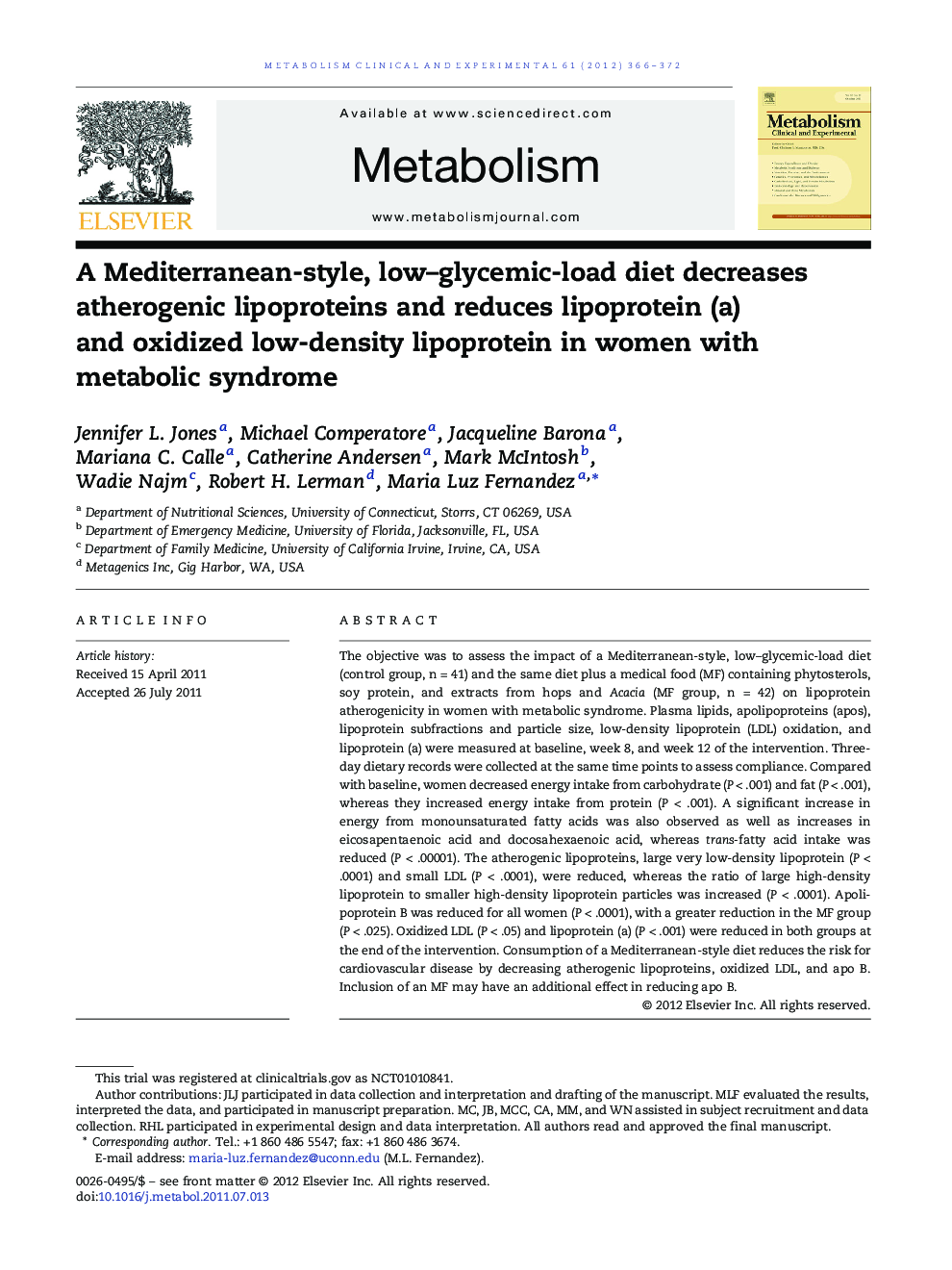| Article ID | Journal | Published Year | Pages | File Type |
|---|---|---|---|---|
| 2806064 | Metabolism | 2012 | 7 Pages |
The objective was to assess the impact of a Mediterranean-style, low–glycemic-load diet (control group, n = 41) and the same diet plus a medical food (MF) containing phytosterols, soy protein, and extracts from hops and Acacia (MF group, n = 42) on lipoprotein atherogenicity in women with metabolic syndrome. Plasma lipids, apolipoproteins (apos), lipoprotein subfractions and particle size, low-density lipoprotein (LDL) oxidation, and lipoprotein (a) were measured at baseline, week 8, and week 12 of the intervention. Three-day dietary records were collected at the same time points to assess compliance. Compared with baseline, women decreased energy intake from carbohydrate (P < .001) and fat (P < .001), whereas they increased energy intake from protein (P < .001). A significant increase in energy from monounsaturated fatty acids was also observed as well as increases in eicosapentaenoic acid and docosahexaenoic acid, whereas trans-fatty acid intake was reduced (P < .00001). The atherogenic lipoproteins, large very low-density lipoprotein (P < .0001) and small LDL (P < .0001), were reduced, whereas the ratio of large high-density lipoprotein to smaller high-density lipoprotein particles was increased (P < .0001). Apolipoprotein B was reduced for all women (P < .0001), with a greater reduction in the MF group (P < .025). Oxidized LDL (P < .05) and lipoprotein (a) (P < .001) were reduced in both groups at the end of the intervention. Consumption of a Mediterranean-style diet reduces the risk for cardiovascular disease by decreasing atherogenic lipoproteins, oxidized LDL, and apo B. Inclusion of an MF may have an additional effect in reducing apo B.
